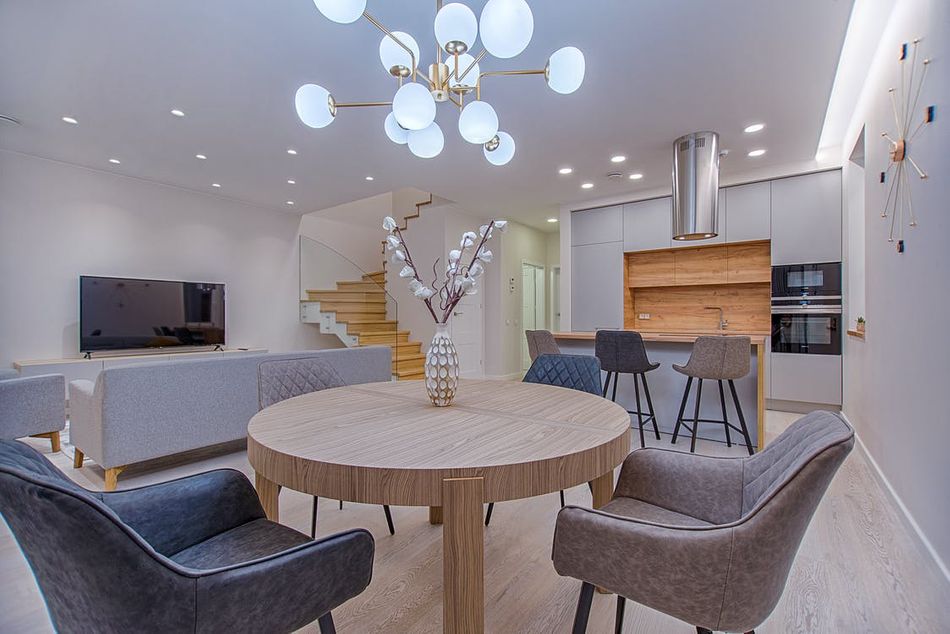In the past, most homes were not equipped with smart technology. This meant that homeowners had to manually control all of the devices and systems in their home, from the heating and cooling to the security system. However, as smart home technology has become more popular, homeowners are now able to control their homes using a smart device, such as a smartphone or tablet. In addition, smart home ecosystems and hubs have become available, which allows homeowners to control all of their smart devices from one central location. This convenience means that homeowners can save time and energy by controlling their smart home from one central hub. It also allows them to monitor their home for any potential problems, such as a fire or flood. As smart home technology continues to evolve, it is likely that more homes will be equipped with smart ecosystems and hubs in the future.
The smart home is no longer a thing of the future- it’s here, and it’s rapidly becoming more sophisticated every day. A smart home is outfitted with devices and appliances that can be controlled remotely, often using a mobile app or voice assistant. But what really sets a smart home apart is the way all of these devices work together to create a seamless, integrated experience. That’s where smart home ecosystems and hubs come in. By centralizing control of your smart devices, hubs make it easy to create a cohesive smart home that meets all your needs. And as the smart home market continues to grow, we can expect to see even more innovative and user-friendly ecosystem hubs hit the market. So whether you’re looking for whole-home automation or just want an easier way to control your smart devices, be sure to check out the latest generation of smart home hubs.
Benefits of Using Smart Lights
Smart lights are sengled light bulbs that can be controlled via an app on your smartphone. You can change the colors of the light, set schedules, and even create custom lighting scenes. While they may seem like a luxury, there are actually several benefits to using smart lights. First, they can help you save energy. By being able to schedule when your lights turn on and off, you can avoid leaving them on unnecessarily. Second, smart lights can improve your mood and concentration. The ability to adjust the color of the light can help you create a calming atmosphere or a brighter one that is better for working. Finally, smart lights add an extra layer of security to your home. With the ability to remotely turn on and off your lights, you can make it appear as though someone is home even when you’re away. Whether you’re looking to save energy, boost your mood, or increase security, sengled light bulbs colors are a great option.
There are many benefits of using smart lights. One benefit is that they can help you save money on your energy bill. Smart lights are more efficient than traditional incandescent bulbs, and they last longer too. This means that you won’t have to replace your light bulbs as often, and you’ll be able to reduce your energy consumption. Additionally, smart lights can help improve your home’s security. You can set them to turn on and off at certain times, or even connect them to your security system. This way, you can deter burglars and keep your home safe. Finally, smart lights can simply make your life more convenient. Many of them can be controlled via voice-activated assistants like Amazon Alexa or Google Home. This means that you don’t even have to get up to turn on the lights – you can just ask your assistant to do it for you. So if you’re looking for a way to save money, increase security, or just make your life easier, consider investing in some smart lights.
Which Smart Lights Should You Buy
When it comes to buying smart lights, there are a few things you need to take into account. First of all, where are you going to be using the lights? If you’re only going to be using them inside your home, then you don’t need to worry about buying solar-powered lights. However, if you want to be able to use your smart lights outdoors, then solar power is a good option to consider. Another thing to think about is how much light you need. If you only need a few LED bulbs, then you can probably get away with buying a less expensive model. However, if you need a lot of light output, then you’ll need to spend more money on a higher-end model. Finally, think about what features you want in a smart light. Some models come with built-in speakers or Wi-Fi connectivity, while others are more basic. Once you’ve considered all of these factors, then you’ll be able to narrow down your options and choose the best smart light for your needs.

